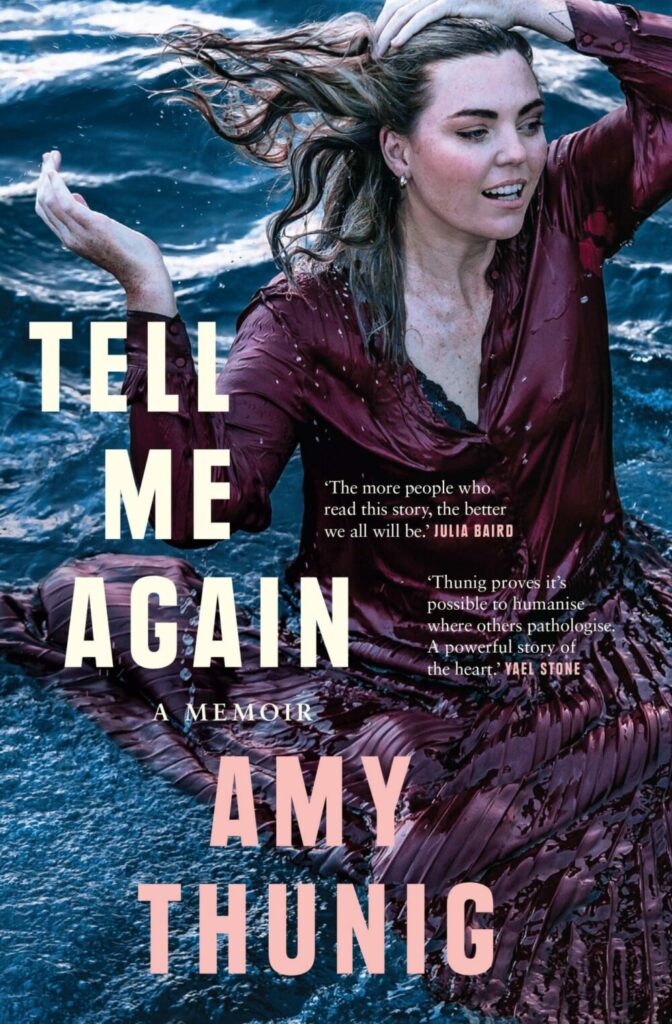Tell Me Again by Amy Thunig is a compelling memoir told with a circular understanding of time. The author’s past and present selves and omnipresent future identity are at play in exquisite form as Thunig shares the transformative and traumatic events of her life from childhood to adolescence and early adulthood. Thunig has got her finger on the pulse of reality, power, politics and admirably her own emotions in this text that holds a mirror to Australia, warts, and all.
Thunig is a Gomeroi/Gamilaroi/Kamilaroi yinarr (woman) who resides on the unceded lands of the Awabakal peoples. She presents the injustice and racism of Australia factually, revealing the ugliness and terrible intergenerational impact of prejudice and the harrowing coal-face – children.
Systematic cruelty is difficult but important to take in. Disadvantage and discrimination try to overwhelm our author but ultimately with her exceptional qualities and inspiring personal drive she prevails. She learns early on that ‘Education is power’ and pursues it with grit. After being let down by the collective, Thunig generously tells this story of great empathy which we can all learn from.

Even though she is so courageous, ‘overwhelm’ is a key word in the text. It describes the way Thunig felt as a child with parents struggling with addiction and incarceration, and also her acknowledgement of the overwhelm they felt in this seemingly inescapable state, and the overwhelm of the trauma that precipitated it for them. Then there’s the vitriol of teachers supposed to care for her, the desperate (and universally understood) feeling of wanting to just fit in and participate as a kid, and (later in life) the experience of bad relationships and finally the overwhelm of looking in the rear-view to confront her upbringing as she becomes a doting and empowered mother.
Descriptions of her parents are both scathing and adoring, Thunig recounts neglect as well as fondly remembers the magic and encouragement of her parents. She says ‘Intention isn’t everything but their belief in me and their attempts to support me had been better than what I’d found in other homes and hearts.’ Caring and present grandparents and community are honoured in the book, and demonstrate that raising a happy child goes beyond the traditional structure of two parents.
In Thunig’s re-telling ‘Tell Me Again’ is a manifesto of understanding, which is a gift to the people she writes about, herself, as well as the reader.